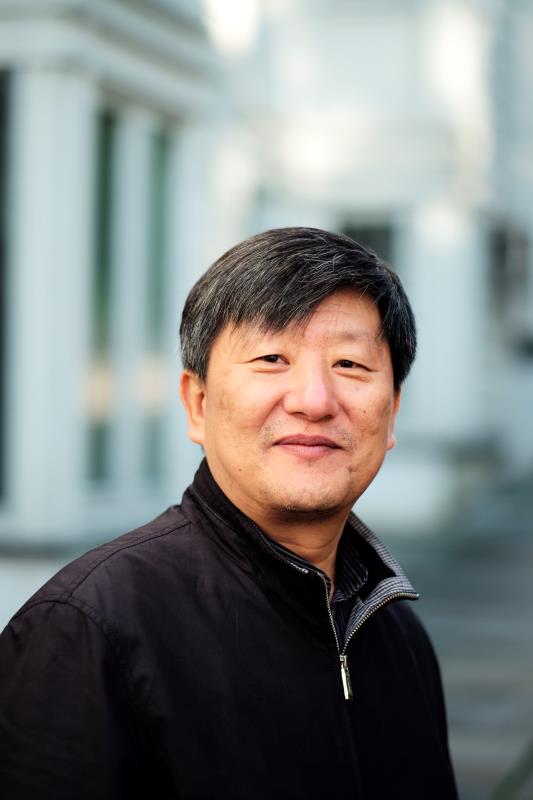
贾国平,作曲家,中央音乐学院教授 。中央音乐学院音乐学研究所所长。曾就读于中央音乐学院作曲系与德国斯图加特国立音乐戏剧大学。其作品被众多乐团在多个国家与城市上演,并由德国Sikorski国际音乐出版社出版发行。
贾国平2007年发起“中国Con Tempo新室内乐作曲比赛”,现已成功举办八届;2011年组建北京现代室内乐团;2011年至2014年参与策划并主持“北京国际作曲大师班”;2015担任"国家艺术基金音乐评论人才培养"项目主持人。
Composer Jia Guoping holds a professorship of composition and serves as the director of the Institute of Musicology at Central Conservatory of Music in Beijing. He received composition degrees from Central Conservatory of Music and Staatliche Hochschule Fur usic und Darstellende Kunst Stuttgart in Germany. Published by Sikorski, his compositions have been performed by renowned orchestras and ensembles around the world.
Launched by professor Jia in 2007, “China ConTempo New Chamber Music Composition Competition" has been successfully held for consecutive eight years. In 2011, he founded the Beijing Modern Chamber Ensemble. From 2011 to 2014, he had held leadership in planning and hosting "Beijing International Composition Master Class Program". In 2015, Prof. Jia initiated the project “Cultivation of Music Critics " through National Art Fund.
音乐分析中的历史观照与认知创新
Historical Observation and Innovative Perspection in Musical Analysis
每一部音乐作品都是历史传统的延伸与拓展。因此,音乐分析也必须是依托历史经验,紧扣乐谱与音响所表达的信息来开展的工作。对于每个作品都应根据它自身所具有的独特的音乐语言与材料特性来进行归纳,发现其内在结构的规范与关联。
任何一种现成的理论体系都有其封闭性与局限性。对于丰富多样的现代音乐创作而言,绝对没有一种放之四海皆准的理论体系。因此,面对多元化与个性化的现代音乐创作,音乐分析也必须是多样化与个性化的创造性行为。现有的音乐分析理论可以从某种角度上提供一种现成的帮助,但同时也隐伏着某种危险,即,遵循一种理论体系的音乐分析往往是以放弃自我独立思考与判断来形成个体认知创新为代价的。所以,对于每个音乐分析者来言,既需要尽可能地学习与了解现有的音乐分析理论体系与分析工具,同时又须避免生搬硬套运用现成的音乐分析理论或定势思维模式去分析作品的教条化行为。
本发言将通过对具体曲例的分析来阐明不同时期的音乐作品如何与作品的历史传统紧密相关,以及作曲家采取何种作曲技术手段达到创新与形成个性化的音乐语言风格。
Every single musical work is an extension and expansion of tradition and history. Therefore, music analysis shall be based upon traditional experiences in history, and also the information presented on the score and in its sound. We must understand each work through its own unique musical language and working materials, discovering the paradigm and association of its inner structure.
Any existing theoretical system has its confinements and inflexibilities. There is absolutely no generic theoretical system for all creativities in modern music making. Confronting the stylistic mosaic of the modern music creation, music analysis must, however, be creatively acting on diversification and individualization. The existing music theories certainly provide perspectives, but in the same time presenting latent crisis, i.e., that to abide by one kind of theory would pay the price of losing one’s independent thinking and judging. Thus, music theorists should learn and grasp existing music theory systems and analytical tools by avoiding mechanical application of them in their work of music analyzing.
By inspecting some selected examples, my talk aims to expound how music works from different periods closely relate to tradition and history, and what technical means composers applied for achieving innovative and individualistic styles of musical languages.



